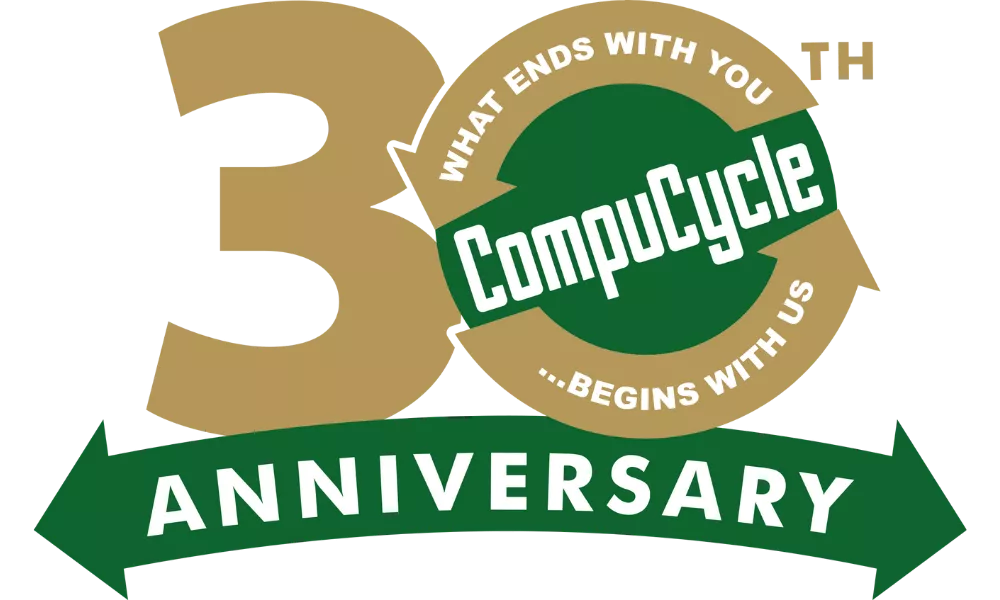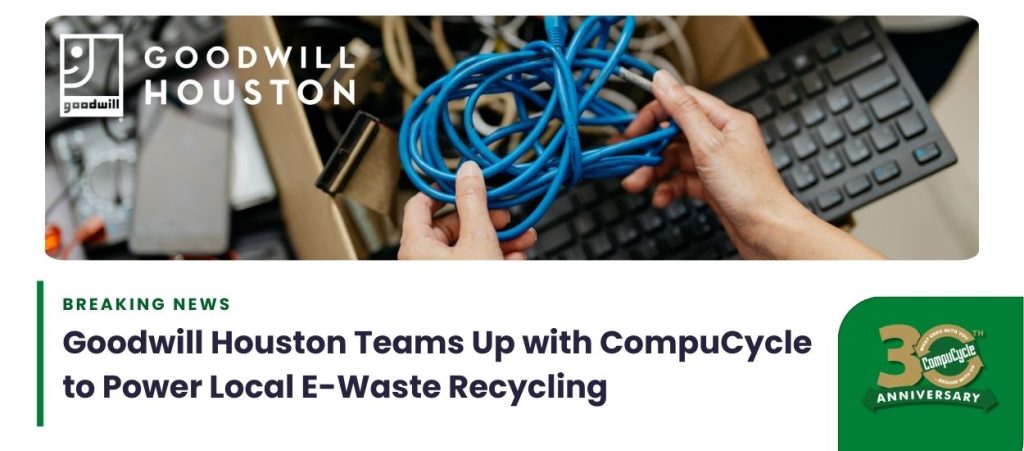
As we approach 2025, the global e-waste landscape is undergoing significant changes, driven by updates to the Basel Convention. Effective January 1, 2025, these changes will affect the trade of both hazardous and non-hazardous electronic waste (e-waste), introducing stricter controls under the newly designated Y49 category. These updates specifically address transboundary movements of e-waste, ensuring that the export and import of such waste comply with the Basel Convention’s objectives of environmentally sound management. For businesses in the United States and around the world, understanding these updates is crucial to ensure compliance and support sustainable recycling practices.
What is the Basel Convention?
The Basel Convention is an international treaty designed to control the transboundary movement of hazardous wastes to protect human health and the environment. Historically, it has applied strict rules, including the Prior Informed Consent (PIC) procedure, for hazardous waste.
Managing such wastes is crucial to prevent illegal handling and ensure proper trading while adhering to environmental safety standards.
Key Changes in the 2025 Amendments
The 2025 amendments to the Basel Convention bring significant enhancements to the regulation of transboundary movements of hazardous wastes, including electronic waste. One of the most notable changes is the introduction of new guidelines aimed at ensuring the environmentally sound management of hazardous waste. These guidelines are designed to promote best practices in handling, recycling, and disposing of electronic waste, thereby minimizing environmental impact.
Additionally, the amendments introduce stringent requirements for the tracking and monitoring of hazardous waste shipments. This includes the implementation of electronic tracking systems, which will provide real-time data on the movement of hazardous waste across borders. Such systems are expected to improve transparency and accountability, ensuring that hazardous waste is managed in compliance with international standards.
The amendments also strengthen provisions related to the prevention of illegal traffic in hazardous waste. A new system for reporting and responding to incidents of illegal traffic has been established, which will facilitate quicker and more effective action against violations. These measures are crucial for protecting both the environment and public health from the dangers posed by improperly managed hazardous waste.
Overall, the 2025 amendments to the Basel Convention represent a significant step forward in the global effort to manage hazardous waste, including electronic waste, in an environmentally sound manner. By enhancing regulations and improving tracking and enforcement mechanisms, these changes aim to reduce the risks associated with hazardous waste and promote sustainable recycling practices.
Understanding Y48: Mixed Plastic Waste from E-Waste
Y48 addresses mixed plastic waste generated during the dismantling and processing of electronic devices. Plastics from e-waste often come in complex mixtures, combined with metals, glass, and other materials, making them one of the most challenging waste streams to manage.
What is Covered Under Y48?
This category focuses on plastics that are derived from electronic waste processing, including:
- Plastic Casings: Outer shells from devices like computers, monitors, and household appliances.
- Mixed Plastics: Materials that are bonded with other substances, such as metals or adhesives, during the manufacturing process.
- Residues: Non-recyclable plastic waste left after dismantling and shredding e-waste.
Y48 also applies to plastics that have been contaminated with hazardous substances, such as flame retardants, which complicate their recycling and disposal.
Why Y48 Regulation Matters
The regulation of mixed plastics under Y48 is essential due to the environmental challenges posed by this complex waste stream. These plastics are often difficult to recycle because they are mixed with other materials like metals, glass, or adhesives, and some are contaminated with hazardous substances such as flame retardants. Effective regulation encourages the development and use of advanced recycling technologies that can sort, clean, and process these plastics, reducing the amount of material that ends up in landfills or incinerators. By ensuring that mixed plastics are handled properly, Y48 prevents the release of harmful toxins into the environment and reduces the risks associated with improper disposal or illegal exports. This category underscores the importance of building recycling infrastructure capable of addressing the complexities of e-plastic waste, ultimately supporting a more sustainable approach to electronic recycling.
Understanding Y49: Non-Hazardous Electronic Waste
The Y49 category represents a significant expansion of the Basel Convention’s scope, aiming to better regulate non-hazardous electronic waste that, while not immediately dangerous, can still cause environmental damage if mismanaged.
What is Covered Under Y49?
Y49 includes a wide range of non-hazardous electronic equipment, components, and processing residues. This category emphasizes the need for proper management of everyday items that often escape stringent oversight, such as:
- Computer Peripherals: Items like keyboards, mice, external hard drives, and power supplies, which are commonly discarded by businesses and households.
- Household Appliances: Devices such as routers, modems, and vacuum cleaners that contain valuable materials but can contribute to waste mismanagement when not handled correctly.
- Battery-Powered Devices: This includes toys, e-readers, and vapes, which pose unique challenges due to embedded batteries that require careful removal and recycling.
- Consumer Electronics: Products such as smartphones, tablets, printers, and flat-screen monitors, which contain recyclable materials like metals and plastics but also risk creating e-waste pollution if improperly disposed of.
Why Y49 Regulation Matters
Although the items classified under Y49 are considered non-hazardous, their improper handling can have significant consequences. These electronics, if discarded carelessly, contribute to pollution in landfills or waterways, releasing materials that harm ecosystems. Proper management ensures that the valuable raw materials within these items, such as rare earth metals and recyclable plastics, are recovered and reused, reducing the demand for virgin resources. Furthermore, regulating Y49 helps prevent the illegal export of non-hazardous e-waste to countries lacking the infrastructure for safe recycling, where such waste often leads to severe environmental and social issues. By implementing these regulations, the Basel Convention promotes responsible recycling practices and advances global sustainability efforts.
Understanding A1181: Hazardous E-Waste under the Basel Convention
The Basel Convention has updated its regulations surrounding hazardous e-waste, and the newly designated A1181 category plays a critical role in these updates. A1181 addresses a broader scope of electronic waste, ensuring that products containing hazardous substances are handled properly throughout their lifecycle. This category includes devices that contain substances such as lead, mercury, cadmium, and brominated flame retardants, which are known to pose significant risks to both human health and the environment if not managed correctly.
What Does A1181 Cover?
A1181 focuses on electronic equipment that contains materials identified as hazardous, particularly those which, if improperly disposed of or recycled, could lead to contamination of air, water, or soil. This includes devices like:
- Circuit boards and electronic components in devices like computers, televisions, and mobile phones
- Cathode-ray tubes (CRTs) found in older monitors and televisions
- Lithium-ion batteries found in mobile devices, electric vehicles, and laptops
- Devices containing lead, cadmium, or mercury, such as certain lighting products (e.g., fluorescent lamps) and batteries
- Mobile electronics (smartphones, tablets, and laptops) that are no longer in use
Why A1181 Regulation Matters
The regulation of A1181, which covers hazardous e-waste, is critical for preventing serious environmental and health risks associated with improper disposal of electronics containing toxic materials. Devices classified under A1181, such as those with circuit boards, cathode-ray tubes, and lithium-ion batteries, contain substances like lead, mercury, and cadmium, which can leach into the environment when not handled correctly. Improper disposal of these items can result in soil, water, and air contamination, posing long-term health hazards to both wildlife and humans.
By regulating A1181, the Basel Convention ensures that hazardous e-waste is managed in an environmentally sound way, promoting recycling practices that minimize harm. Proper management of these materials allows for the safe extraction of valuable components, such as gold, copper, and silver, while preventing the release of harmful substances. Additionally, A1181 regulation helps prevent the illegal export of hazardous e-waste to countries without the infrastructure to process it safely. Without these safeguards, e-waste is often sent to locations with limited recycling capabilities, leading to toxic exposure for workers and widespread environmental damage.
In summary, the A1181 regulation plays a crucial role in protecting public health, safeguarding ecosystems, and promoting responsible recycling practices. By ensuring that hazardous e-waste is disposed of safely and efficiently, these regulations contribute to a cleaner, healthier, and more sustainable global environment.
How These Amendments to the Basel Convention Impact the U.S.
Although the United States is not directly bound by the Basel Convention, these updates will significantly impact U.S. businesses involved in international trade. With the introduction of stricter regulations, particularly regarding Y49 and A1181 e-waste, U.S. exporters may face trade restrictions with Basel Party countries unless they have established bilateral agreements (Article 11) that align with Basel’s standards. This could result in bans on the export of specific e-waste items unless businesses comply with these new regulations.
Asset disposal becomes a crucial element of IT asset disposition (ITAD) services in this evolving landscape. Businesses will need to implement effective disposal methods that not only ensure the safe handling of e-waste but also maximize the return on investment through the recovery of valuable materials, while maintaining rigorous data sanitation and security standards.
Countries such as Canada and those within the European Union have already announced that they will require Prior Informed Consent (PIC) procedures for the import of Y49 and A1181 e-waste, making compliance even more important for U.S. exporters. While there are some exceptions for working equipment intended for reuse or specific agreements with countries like Japan, the overall regulatory environment is tightening, increasing the need for U.S. businesses to adapt.
CompuCycle’s Proactive Commitment to the 2025 Basel Convention Amendments
In light of the changing global regulations surrounding e-waste management, it’s more important than ever for businesses to partner with responsible, certified, in-house processors and recyclers. CompuCycle, Houston’s exclusive e-Stewards certified electronics recycler and processor, is mandated to abide by the Basel Convention, thereby adhering to the Y48, Y49 and A 1181 amendments.
CompuCycle has long been a leader in sustainable practices, ensuring that all e-waste is handled with the utmost care and in full compliance with environmental standards. Our commitment to sustainability, responsible recycling, and the ethical disposal of electronic waste remains steadfast. Our processing of electronics into raw materials (steel, copper, aluminum, plastics, and circuit boards) is in compliance with Y49 and A1181 amendments, and our processing of electronics plastics into single polymer plastics (PP, PE, ABS and PS) is in compliance with Y48 amendment.
By working with CompuCycle, businesses can ensure they are not only complying with the new amendments, but are also contributing to the protection of the environment through secure and sustainable recycling practices.
How will CompuCycle Remain Compliant with the 2025 Basal Convention Amendments?
CompuCycle operates with a steadfast commitment to transparency and environmental stewardship by maintaining all e-waste processing in-house. Unlike many recyclers that outsource portions of their recycling operations, CompuCycle’s closed-loop approach minimizes risks of mishandling, mismanagement, or the unknown export of electronics to other countries.
This direct control ensures that each electronic device is handled responsibly, adhering to both environmental and safety standards. By keeping processing in-house, CompuCycle eliminates the gray areas that often lead to e-waste being dumped in landfills or improperly managed in overseas facilities, thereby reducing the environmental and ethical risks associated with global e-waste exports.
At CompuCycle, we are committed to helping businesses adapt to these changes. As Houston’s exclusive certified e-Stewards recycler and processor, required to comply with the Basel Convention Amendments with over 25 years of experience, we ensure environmentally sound disposal, refurbishment, and data destruction. Whether you’re navigating Y49 requirements or managing hazardous A1181 materials, our expertise can guide you through compliance with confidence.
Looking Ahead: The Future of Electronic Recycling
As the global landscape of e-waste recycling continues to evolve, businesses and organizations must prepare for the growing complexities brought on by the Basel Convention amendments. The introduction of Y49 and A1181 classifications, along with tighter regulations surrounding the export and import of e-waste, underscores the importance of proactive, responsible recycling practices.
Looking ahead, businesses will need to invest in compliant asset disposal methods, ensure they are working with trusted recycling partners, and stay up-to-date on international regulatory changes.
At the same time, the role of certified e-recyclers like CompuCycle, Houston’s exclusive certified e-Stewards recycler and processor, complying with the Basel Convention Amendments, will be critical in ensuring that companies navigate these changes smoothly and responsibly. With over 25 years of experience,
CompuCycle is well-positioned to help businesses meet the new requirements, offering solutions that prioritize environmental stewardship, data security, and ethical recycling. As we move closer to 2025 and beyond, CompuCycle remains committed to leading the way in sustainable e-waste management, helping businesses meet their environmental goals while adhering to the strictest international standards.
2025 Basel Convention Amendment FAQ
The new Basel Convention requirements for the transboundary movement of e-waste and scrap will be enforced starting January 1, 2025.
Excited to learn more? Explore our other informative blog articles!
- Circularity in Action: CompuCycle’s Commitment to Houston E-Waste Recycling
- When to Choose Data Sanitization Over Data Destruction: A Guide to Data Lifecycle Management for IT Managers
- A Step-by-Step Guide to an Effective Year-End IT Asset Clean-Out to Celebrate America Recycles Day
Learn more about CompuCycle’s IT Asset Disposal and secure data destruction services. For more information, visit CompuCycle.com, contact us online or call us at (713) 869-6700 to schedule a tour of our facility.
Recent Articles
Goodwill Houston Partners with CompuCycle to Offer Simple, Responsible Electronics Recycling for the Community
Goodwill Houston and CompuCycle have partnered to give Houstonians a simple, trustworthy way to donate and recycle household electronics.
Through this collaboration, residents can drop off laptops, desktops, tablets, monitors, and other household electronics at participating Goodwill Greater Houston donation centers. Reusable items help fund Goodwill’s job training and community programs, while non-resellable electronics are sent directly to CompuCycle’s certified Houston facility for secure, fully in-house recycling—ensuring materials are responsibly processed locally from start to finish.
CompuCycle Becomes Exclusive Woman-Owned E-Waste Processor in Texas with ISO 27001 Data Security Certification
New Information Security Management System (ISMS) Certification Guarantees End-to-End Data Confidentiality and Integrity for Corporate IT Asset Disposition (ITAD). HOUSTON, TX – December 9, 2025 – CompuCycle, an industry leader in secure and sustainable IT…
Secure Electronics Disposal in Houston: Why the City’s Largest Industries Trust CompuCycle
When a major healthcare system decommissions thousands of laptops, or an oil and gas company retires an entire data center, one question comes up again and again: What happens to all that data — and…
CompuCycle Executives Join R2 TAC and e-Stewards Leadership Council to Advance ITAD Standards
Houston-based ITAD provider deepens its industry influence through active participation in standard-setting committees. As corporate ITAD needs evolve alongside stricter compliance and ESG requirements, CompuCycle continues to lead the way—this time by contributing directly to…



